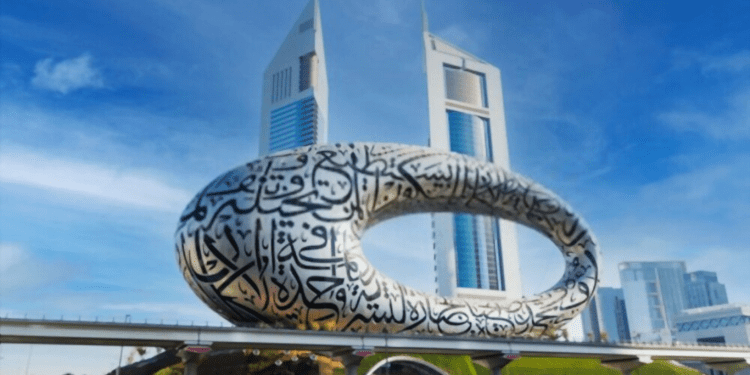Thanks to government efforts, the United Arab Emirates (UAE) has become one of the most popular locations for Web3 ventures.
The UAE is one of the top leaders in the Web3 economy, as evidenced by a recent report compiled by the Crypto Oasis Ecosystem platform. The analysis found over 1,450 registered Web3 firms, employing close to 7,000 people, all based in the UAE.
The analysis classified Web3 initiatives as either “native” blockchain projects or “non-native” programs. Only built ones from the ground up with native decentralized technology can be called “native blockchains.”
UAE Government on Backing Web3
About 950 groups are presently making efforts in this direction which make up 65%, while about 500 groups are not doing so, around 35%. According to the research, more than half of Dubai’s native blockchain firms have registered with the Dubai Multi Commodities Centre.
The government of the United Arab Emirates showed its support and willingness to partner with solid foundations when it comes to embracing blockchain technology and the emerging markets surrounding it. These projects include Web3, metaverse, and nonfungible tokens (NFTs).
The Blockchain Economy Dubai Summit, now taking place in Dubai, is one of the few launched initiatives offering the massive economic potential for Web3 developers, investors, and influencers.
In July, the government of Dubai unveiled a metaverse plan to make Dubai among the top 10 metaverse economies worldwide. Over 40,000 virtual employment are expected to be posted in the virtual realm in Dubai by the year 2030.
After September ended, the UAE Ministry of Economy went full-steam forward with the initiative, becoming one of the first state organizations to establish a presence in the metaverse.
The country’s dedication to Web3 innovation has made it the melting pot for some of the world’s most prominent crypto exchange platforms and businesses. Binance, one of the most popular cryptocurrency exchange apps, made its name known in the Middle East, establishing offices in Dubai, Abu Dhabi, and other Middle Eastern cities. This move entices local investors to show interest in cryptocurrency.
Rare Occurrence in the Web3 Industry
Cryptocurrency has become the buzz since Bitcoin’s mainstream success in 2017. Since then, plenty of people have discussed the actual value of crypto and the legitimacy of its use case, which naturally caught the attention of governments worldwide – particularly in the United States.
The Feds continue prosecuting multiple crypto firms, accusing them of serious crimes such as laundering money and luring people into losing their money for what traditional investors call crypto a “Ponzi scheme.”
While nobody can blame the authorities, cryptocurrency and Web3 assets did have several money thefts, including multiple bridge protocol hacks, GameFi breaches, and NFT scams. Digital crooks have taken advantage of the decentralized nature of blockchain assets, and governments think Web3 companies must be regulated.
Governments, including the US, Canada, UK, EU, Singapore, India, China, and Australia, have already set up regulations and prohibitions on using or mining cryptocurrencies. This has led many people to call central banks unfair to the competition.
However, some governments support Web3 applications, including El Salvador, the Philippines, and the UAE. Middle Eastern countries have had their share of interest in Web3’s potential, hence the number of metaverse establishments now found in the UAE.
The ever-growing Web3 economy in the country will also help in providing new lucrative and stable jobs for people, which may lead the UAE as one of the leading countries in the blockchain industry.














